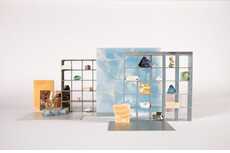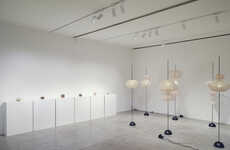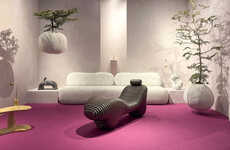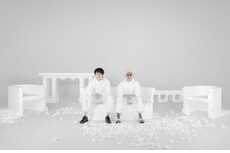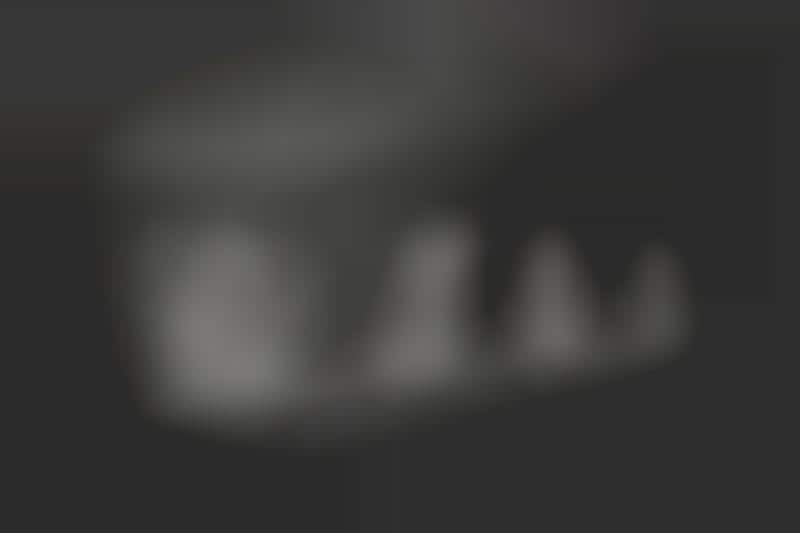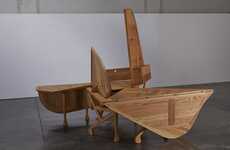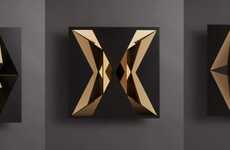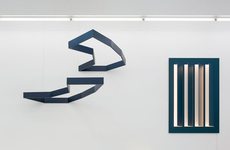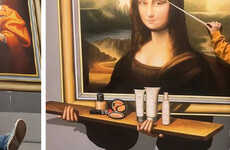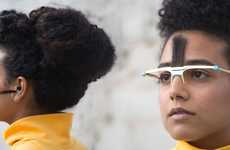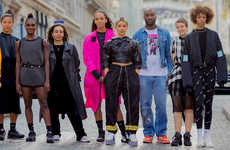
Nendo Curates an MC Escher-Inspired Exhibit in Melbourne
Kalin Ned — December 12, 2018 — Art & Design
References: ngv.vic.gov.au & dezeen
M.C. Escher — or Maurits Cornelis Escher, is a Dutch graphic artist who is most renowned for his intricate impossible geometry drawings. Deriving inspiration from mathematical objects, the works are illusory and highly interesting. Japanese design studio Nendo pays homeage to the artist's exceptional portfolio through a specially curated exhibition at the National Gallery of Victoria.
The show includes 157 impossible geometry drawings made by Escher between 1916 and 1969. Titled 'Between Two Worlds,' the exhibit is entirely monochromatic, allowing guests to survey the work and marvel at the immersive shapes without being distracted by color. To unify MC Escher's work, Nendo chooses an accessible thematic for its Melbourne exhibition debut — a house motif that "provides a context for display and [a] direction [for] visitors."
Photo Credits: Takumi Ota
The show includes 157 impossible geometry drawings made by Escher between 1916 and 1969. Titled 'Between Two Worlds,' the exhibit is entirely monochromatic, allowing guests to survey the work and marvel at the immersive shapes without being distracted by color. To unify MC Escher's work, Nendo chooses an accessible thematic for its Melbourne exhibition debut — a house motif that "provides a context for display and [a] direction [for] visitors."
Photo Credits: Takumi Ota
Trend Themes
1. Impossible Geometry Art - Disruptive innovation opportunity: Explore new ways to incorporate impossible geometry into various art forms for a unique visual experience.
2. Monochromatic Exhibitions - Disruptive innovation opportunity: Create exhibitions that showcase artworks in a monochromatic style to enhance the viewers' focus on the composition and form of the pieces.
3. Thematic Display Concepts - Disruptive innovation opportunity: Develop innovative ways to use thematic motifs in exhibitions to provide context and guide visitors' experience.
Industry Implications
1. Art Galleries - Disruptive innovation opportunity: Incorporate virtual reality or interactive elements into gallery spaces to create immersive experiences for visitors.
2. Graphic Design - Disruptive innovation opportunity: Utilize impossible geometry principles in graphic design projects to create visually striking and intriguing outcomes.
3. Event Management - Disruptive innovation opportunity: Introduce unique exhibition concepts, such as monochromatic displays or thematic motifs, to add a new level of creativity and engagement to events.
5.3
Score
Popularity
Activity
Freshness

